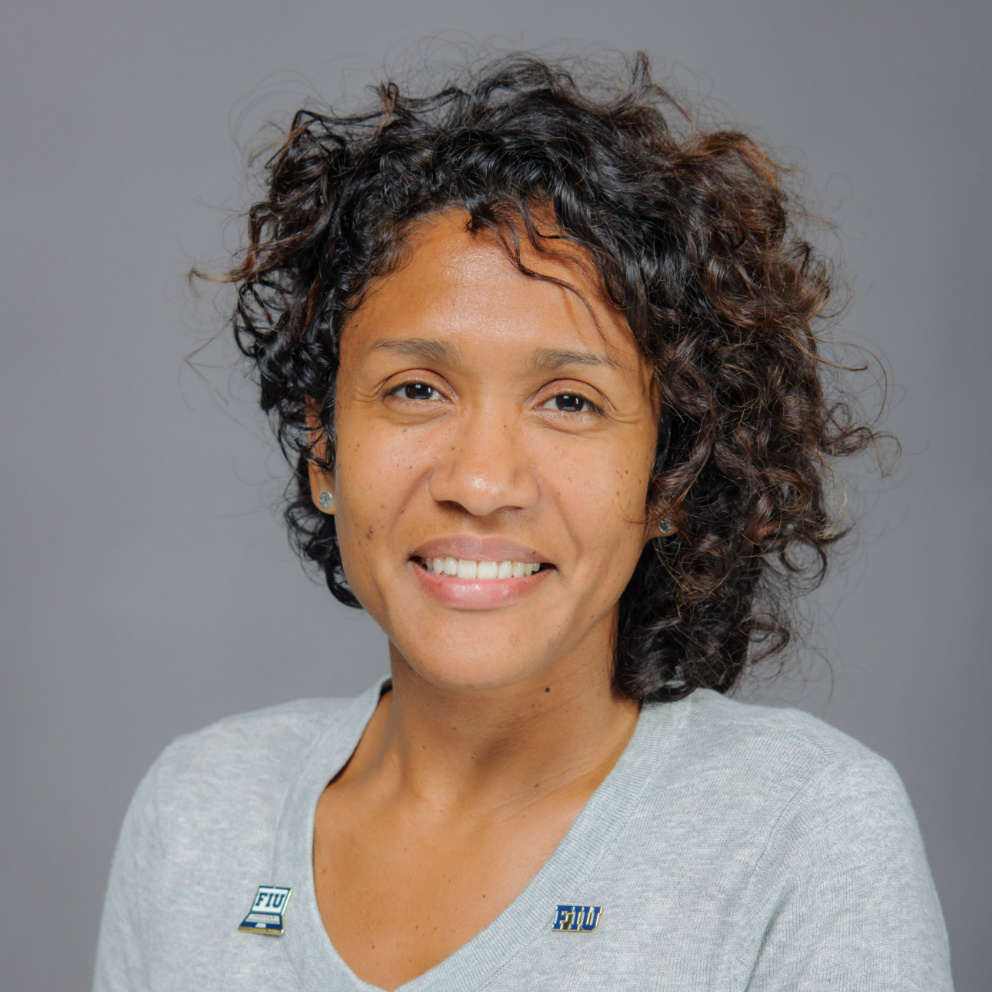Monique Ross is using her engineering skills to solve a problem more complicated than software programming or computational algorithms – she’s working on how to broaden participation in engineering.
Ross is an Assistant Professor in the School of Computing and Information Sciences in the College of Engineering and the STEM Transformation Institute. She joined FIU in 2016. “As a school with many commuter students, transfer students, and non-traditional students, everything that FIU is was a part of my own path.”

Ross didn’t actually set out for a career in engineering education. She studied computer engineering as an undergrad and began working for Raytheon Systems Company, a Department of Defense contractor. She spent eleven years as a software engineer and during that time, got a master’s degree in computer science and software engineering. This gave her the opportunity to track the make-up of the industry. “I had had this question nagging at the back of my mind for years,” she says. “I’d watch a group of women and minorities get hired, and then they’d be gone within two years. This was a constant cycle, and I wanted to know what factors were playing a part.”
She decided to pursue a doctorate degree in engineering education at Purdue University. The tools she had learned as an engineer in practice were extremely transferable to systematic study, she discovered. “In engineering you define a problem, come up with a method to solve it, and execute that method. The same principle applies in research.”
Ross’ research focuses on the exploration of race, gender, and identity in the engineering workplace and discipline-based education research. She was recently awarded an NSF CAREER Award, a prestigious, five-year award for junior faculty who exemplify the role of teacher-scholars through research, education and the integration of education and research. Her project, entitled Cracking the Diversity Code: Understanding Computing Pathways of those Least Represented, is designed to further understand how Black and Hispanic women encounter, decide to pursue, and their experiences within the field of computer science.
“The research shows that for many white women in computer science, male familial connections helped get them interested,” says Ross. “But considering Black and Hispanic males are also underrepresented in computing this same pathway is not available to Black and Hispanic women. Additionally, the number of minority women in computer science is extremely low. So what other pathways are there? How can we be more strategic in getting them into the field?”
The project builds on a pilot study Ross completed at FIU, and will attempt to replicate that study at two Historically Black Colleges and Universities, two Minority-Serving Institutions, two Hispanic-Serving Institutions, and two predominantly white universities, in order to document different challenges and experiences. The results will then be used to generate a larger, nation-wide study.
She is currently recruiting undergraduate students for a two week “educational research” bootcamp (which will continue regularly for as long as the participants are in school). These students will assist in data collection and analysis in the project’s target audience of Black and Hispanic women in computer science degree programs at all levels.
Her own pathway to engineering highlights the importance of friends and community. Her personal statement for graduate school discussed the barriers to engineering, from the many course requirements necessary before being able to take an engineering class to advisors who told her to switch careers.
“Fortunately for me, for every naysayer at every stage of my career, I had two advocates telling me to keep going, but too many people aren’t as lucky,” she says. “This is personal to me. I want to know how to move the needle and make changes.”
FIU Women in Research is a regular feature of ADVANCE News that examines the impressive work female faculty members are doing at the university.
